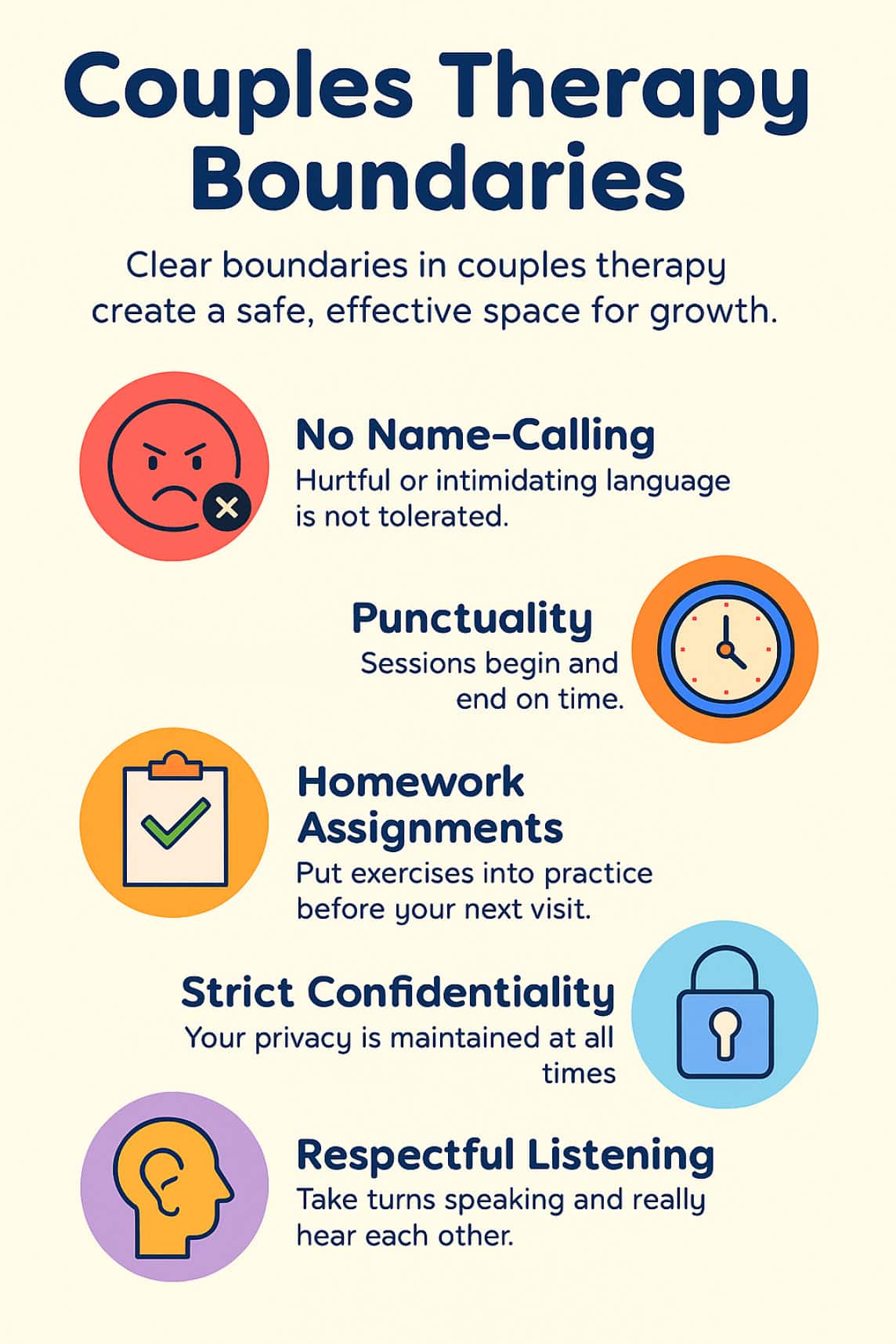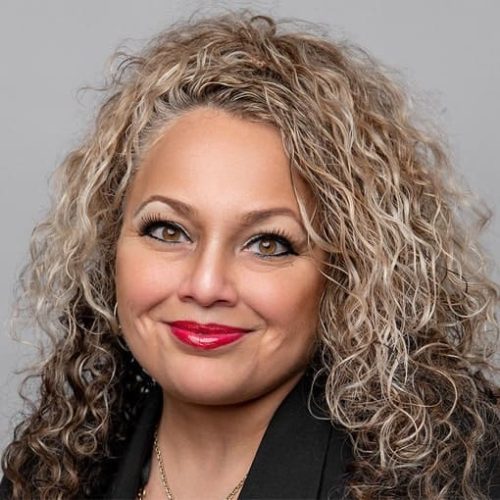
Key Takeaways for Couples Therapy Boundaries.
- Respect is mandatory – No name-calling, sarcasm, contempt, or physical intimidation allowed.
- Sessions are structured: You are expected to arrive on time and honour the session length.
- Confidentiality is upheld: What’s shared in therapy stays private unless safety is a concern.
- Homework is part of the process: Practising between sessions builds momentum and results.
- Active listening matters: Let your partner speak without interrupting or dismissing them.
Following these rules helps your therapist focus on resolving real issues, not managing conflict during sessions.
👉 Want to know how couples therapy works and whether it’s right for you? Learn more about couples counselling at AERCS and book your free 15-minute phone consultation.

Couples therapy works best when we all follow clear couples therapy boundaries. These ground rules include no name-calling, contempt, or physical intimidation, arriving and finishing on time, completing homework between sessions, and practising strict confidentiality with respectful listening at every appointment.
Respectful Communication Comes First.
No Name-Calling or Contempt.
Words like “lazy” or eye-rolling signals contempt and stall progress. If tempers rise, I will pause the dialogue, coach a calmer tone, or suggest a short break.
Speak for Yourself.
Use “I feel…” rather than “You always…”. This language reduces blame and keeps the focus on your emotions and needs.
Physical and Emotional Safety.
- Zero tolerance for intimidation:
Physical threats or aggressive gestures result in an immediate pause and safety plan. - Safe seating and exits:
Partners sit where both feel comfortable and can leave the room easily if overwhelmed.
Time Boundaries Keep Us on Track
| Session Element | Time Limit |
|---|---|
| Check-in | 5 minutes |
| Main exercise | 35 minutes |
| Wrap-up and homework | 10 minutes |
Sessions start and end on schedule so you can plan your day and maintain momentum.
Confidentiality Rules You Can Trust.
- Shared confidentiality:
Everything said in joint sessions stays in the room unless you both agree to share it elsewhere. - Private disclosures:
If you tell me something individually that impacts the relationship, I will help you bring it to the next joint session rather than keep secrets.
Homework: The Bridge Between Sessions.
Expect short assignments like a five-minute gratitude exercise, a stress-reducing conversation, or reading a handout. Homework turns insight into habit, speeding your progress.
Listening Without Interrupting.
When one partner speaks, the other listens, then paraphrases what they heard. This rule trains active listening and prevents defensive interruptions.
Accountability and Progress Checks.
Every fourth session we review goals, celebrate wins, and adjust plans. If either of you feels the rules are slipping, we name it, reset, and continue.
Boundaries Build Success.
Following these couples therapy boundaries creates a safe, productive space where both partners feel heard and respected, allowing real change to happen. Ready to experience structured, supportive counselling in Orangeville, Toronto, or the GTA? Visit our Couples Counselling page to learn more or book your free 15-minute phone consultation today.
Why are couples therapy boundaries so strict about no name-calling?
Couples therapy boundaries ban insults because contempt blocks empathy and stalls progress.
Do couples therapy boundaries allow private secrets with the therapist?
Confidentiality exists, yet couples therapy boundaries require sharing any secret that affects the relationship in a joint session.
How do couples therapy boundaries handle lateness?
Arriving late shortens your appointment because couples therapy boundaries keep sessions on schedule for fairness and momentum.
Can homework be skipped under couples therapy boundaries?
Homework is expected, couples therapy boundaries view it as essential practice that turns insight into lasting habit.
What if physical intimidation happens despite couples therapy boundaries?
The session pauses immediately, safety plans are made, and couples therapy boundaries may require individual work before joint sessions resume.
Do You Need Couples Counselling?
Answer these 10 questions to see if a few sessions could help strengthen your relationship.
Note: This questionnaire is educational only and does not replace a clinical assessment. If you wish to obtain professional guidance, please follow up with a licensed mental health professional.

